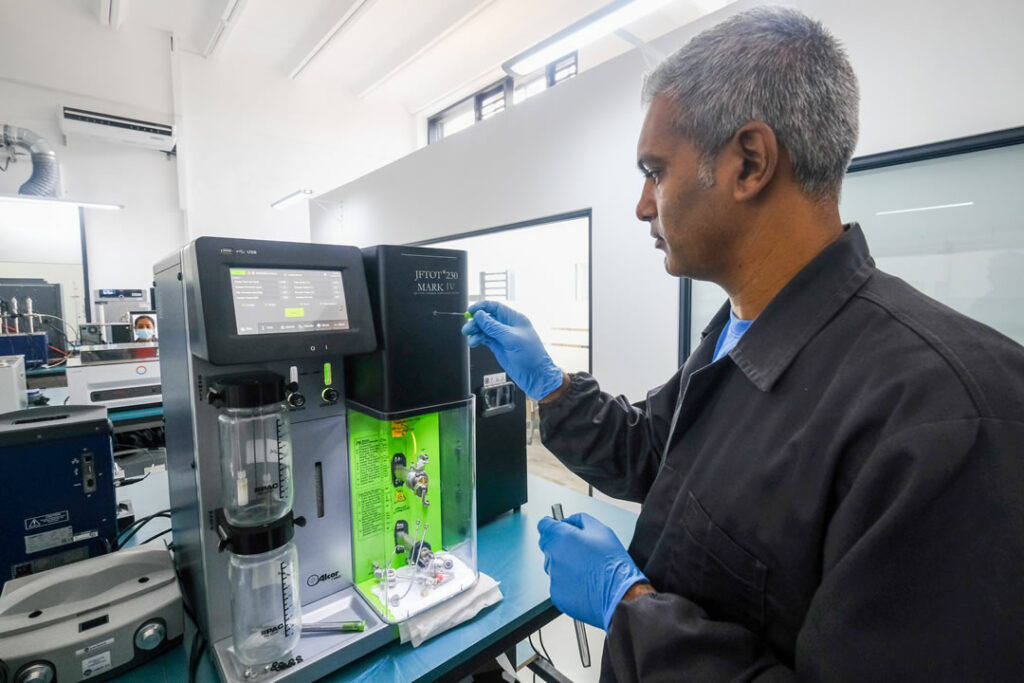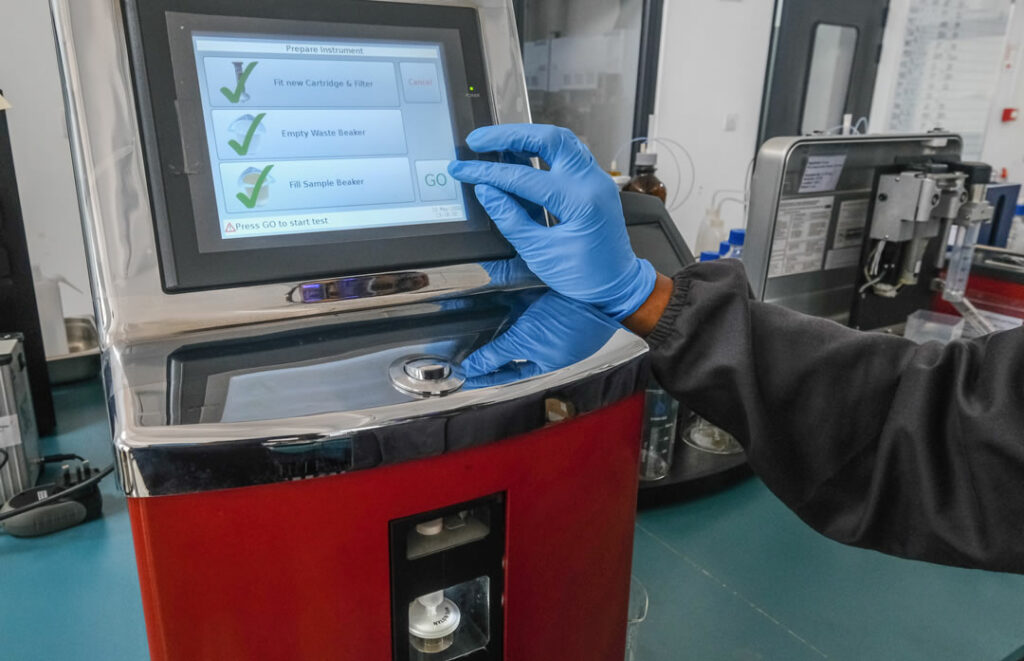Petroleum
Overview Service
QuantiLAB, an independent company under QIMA, is dedicated to providing comprehensive testing, inspection, certification, and advisory services to clients worldwide. With our global perspective and local expertise, we excel in controlling, testing, and issuing reports on various petroleum products, adhering to both international standards and local regulations. Our state-of-the-art laboratory in Phoenix, accredited to ISO 17025, employs a team of experts who conduct thorough analytical testing on a wide range of fuels, from light distillates to residual oils such as motor gasoline, aviation turbine fuel (Jet A1), gasoil (diesel), fuel oil, and marine bunker products. Our testing procedures follow renowned international standards like ASTM, ISO, EN ISO, NF EN, and IP.
At QuantiLAB, we go beyond traditional testing by offering additional services such as blending, GCMS analysis to detect contaminants in bunker fuels, and investigations into quality issues. Our main laboratory is equipped with advanced technology to ensure accurate and reliable results. We are available round-the-clock, 365 days a year, to provide assistance whenever needed.
Hereunder the estimated turnaround times for full recertification of various fuel grades:
– Jet A1: 5-6 hours
– Motor Gasoline: 6-8 hours
– Gasoil: 24 hours (6 hours excluding PAH & Oxidation Stability)
– Aviation Fuel: 5-6 hours (including FAME)
– Marine Gasoil: 24 hours (6 hours excluding Oxidation Stability)
– Marine Fuel Oil: 6-8 hours
Understanding different types of fuels is crucial, as using the wrong fuel can have catastrophic effects on your vehicle’s engine. At QuantiLAB, we offer a comprehensive range of testing and quality control services to ensure that the specifications of motor gasoline are suitable for your car. Motor gasoline possesses a remarkably high energy density, making it ideal for vehicles. The higher the octane rating (95 or 98), the better the fuel’s resistance to premature combustion in the engine’s combustion chamber. Using a lower octane fuel than required can lead to poor engine performance, damage, and issues with emissions control systems over time. Additionally, we assess properties such as volatility, knocking resistance, vapor pressure, and water tolerance, which are essential for optimal performance.
Jet A1 is a high-quality aviation turbine fuel used in commercial and military aircraft. It is a kerosene-based fuel with a flash point above 38 degrees Celsius and a freezing point below -47 degrees Celsius. Jet A1 has a high energy content, efficient combustion. Jet A1 must meet specific specifications and standards set by organizations such as the International Air Transport Association (IATA), AFQRJOS (Aviation Fuel Quality Requirements for Jointly Operated Systems) and the American Society for Testing and Materials (ASTM). These specifications ensure that the fuel meets stringent quality requirements for safe and efficient operation in aircraft.
Gasoil is the liquid fuel used in diesel engines. Unlike gasoline engines, diesel engines rely on compression rather than spark ignition. As a result, diesel fuels are derived from less volatile fractions of crude oil and provide better fuel economy due to higher energy release during combustion. Diesel fuel is widely used globally, powering vehicles, equipment, and generators for various purposes. At QuantiLAB, we ensure that the quality of diesel fuel is maintained by assessing factors such as cleanliness, ignition quality (cetane index/number), non-corrosivity, and density.
Fuel oil plays a crucial role in industrial processes and electricity generation in power plants. QuantiLAB offers fuel analysis services to ensure that your equipment’s fuel systems remain clean, operate at peak performance, and prevent fuel injectors from being compromised by contaminants. Our analysis helps minimize issues like power loss, poor fuel economy, costly engine damage, and downtime.
Marine bunker fuel testing is essential prior to loading, discharge, and ship-to-ship operations to guarantee the quantity and quality of fuel oil used at sea. At QuantiLAB, we perform commercial bunker fuel analysis in accordance with the ISO 8217 specifications, providing guidance on the quality of the supplied product and ensuring compliance with safety and environmental requirements such as SOLAS, MARPOL Annex VI, EU Sulphur directive, and ISO 8217. Our analysis helps detect problems like high pour point, low flash point, high sediment, high carbon residue, fuel stability, compatibility issues, and contaminants, enabling optimal treatment of fuels onboard.


Other Services
Need help?
If you require more information regarding any of the services QuantiLAB provides, please do not hesitate to get in-touch.
